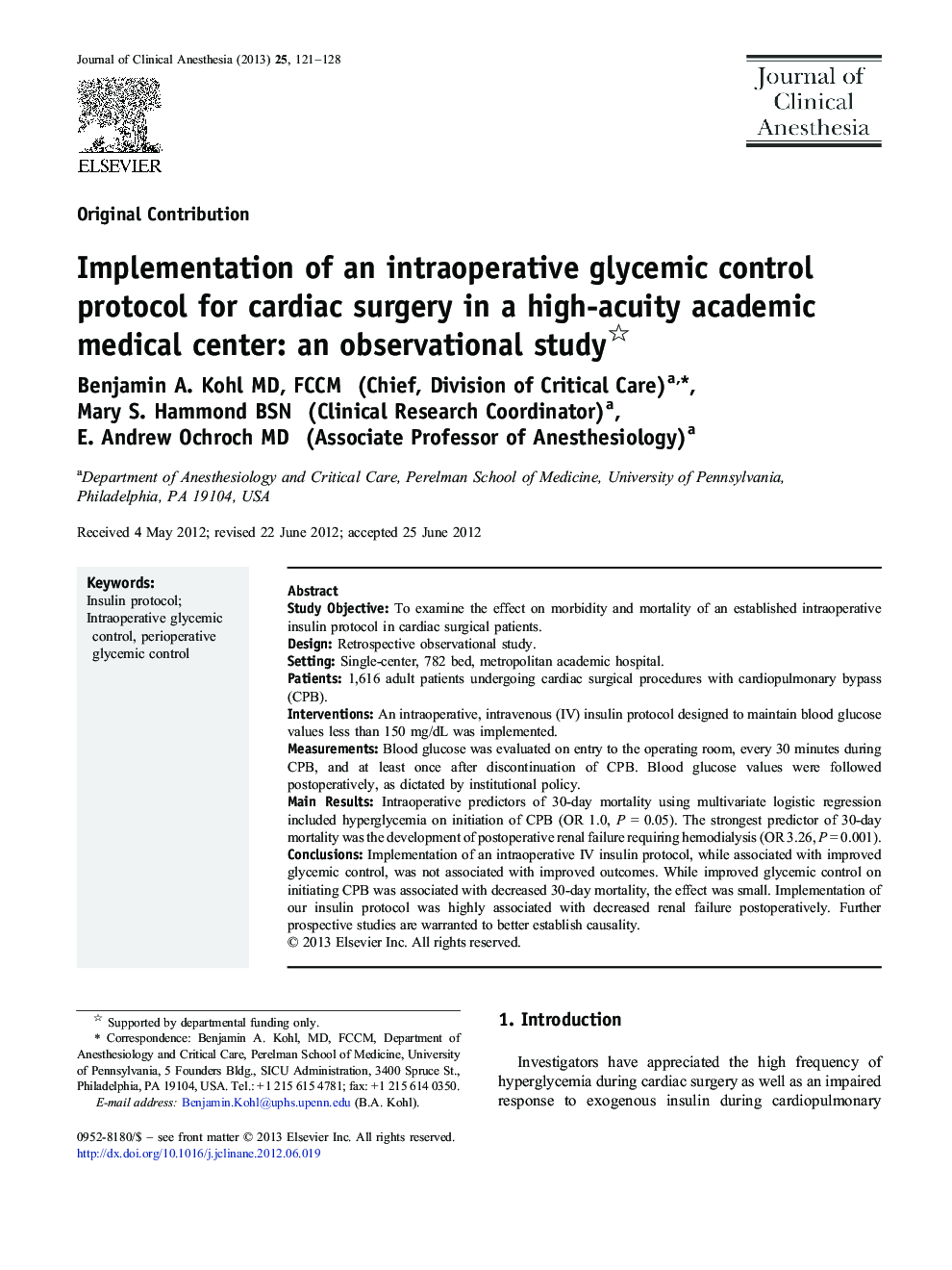| Article ID | Journal | Published Year | Pages | File Type |
|---|---|---|---|---|
| 2763044 | Journal of Clinical Anesthesia | 2013 | 8 Pages |
Study ObjectiveTo examine the effect on morbidity and mortality of an established intraoperative insulin protocol in cardiac surgical patients.DesignRetrospective observational study.SettingSingle-center, 782 bed, metropolitan academic hospital.Patients1,616 adult patients undergoing cardiac surgical procedures with cardiopulmonary bypass (CPB).InterventionsAn intraoperative, intravenous (IV) insulin protocol designed to maintain blood glucose values less than 150 mg/dL was implemented.MeasurementsBlood glucose was evaluated on entry to the operating room, every 30 minutes during CPB, and at least once after discontinuation of CPB. Blood glucose values were followed postoperatively, as dictated by institutional policy.Main ResultsIntraoperative predictors of 30-day mortality using multivariate logistic regression included hyperglycemia on initiation of CPB (OR 1.0, P = 0.05). The strongest predictor of 30-day mortality was the development of postoperative renal failure requiring hemodialysis (OR 3.26, P = 0.001).ConclusionsImplementation of an intraoperative IV insulin protocol, while associated with improved glycemic control, was not associated with improved outcomes. While improved glycemic control on initiating CPB was associated with decreased 30-day mortality, the effect was small. Implementation of our insulin protocol was highly associated with decreased renal failure postoperatively. Further prospective studies are warranted to better establish causality.
